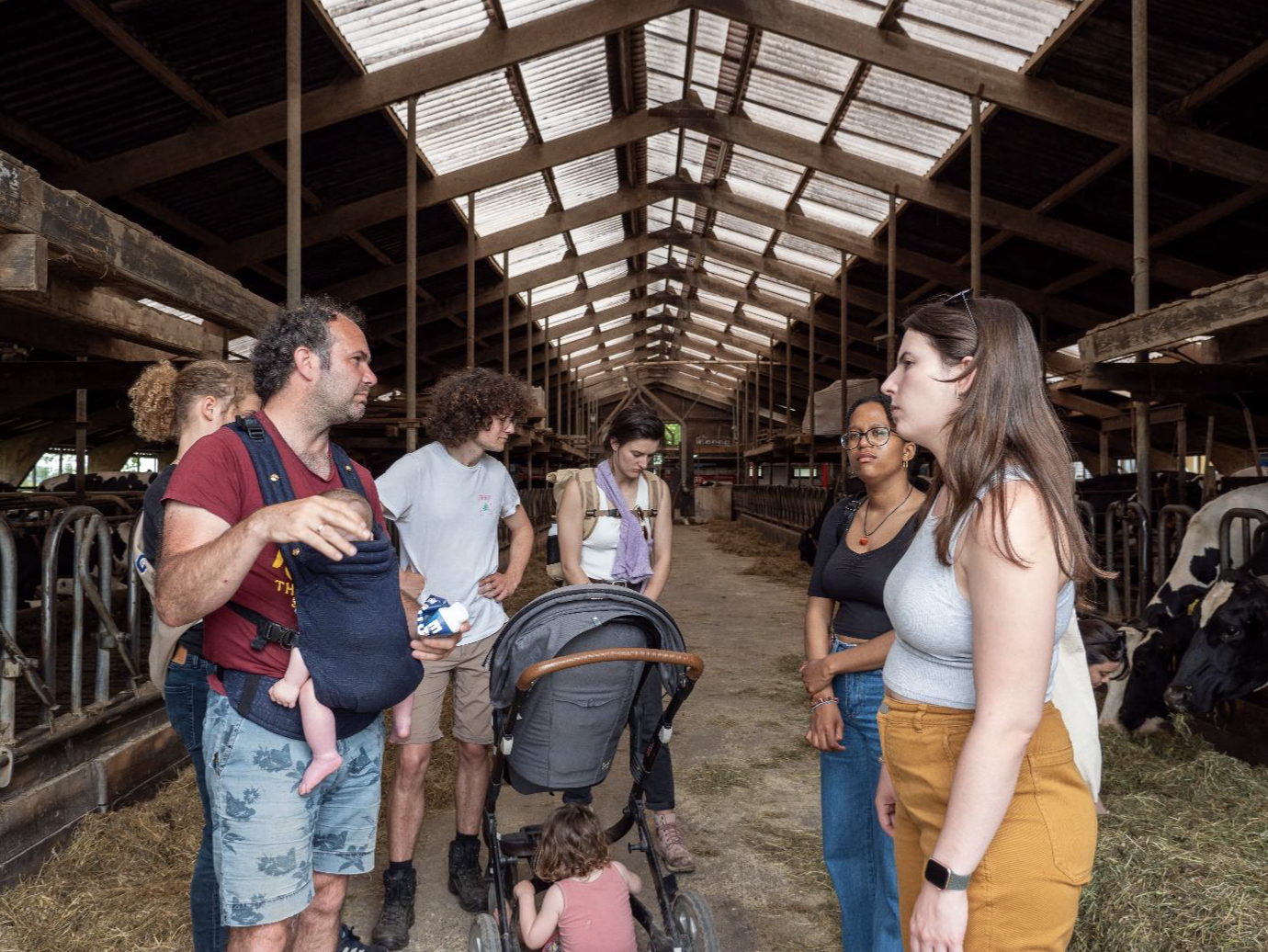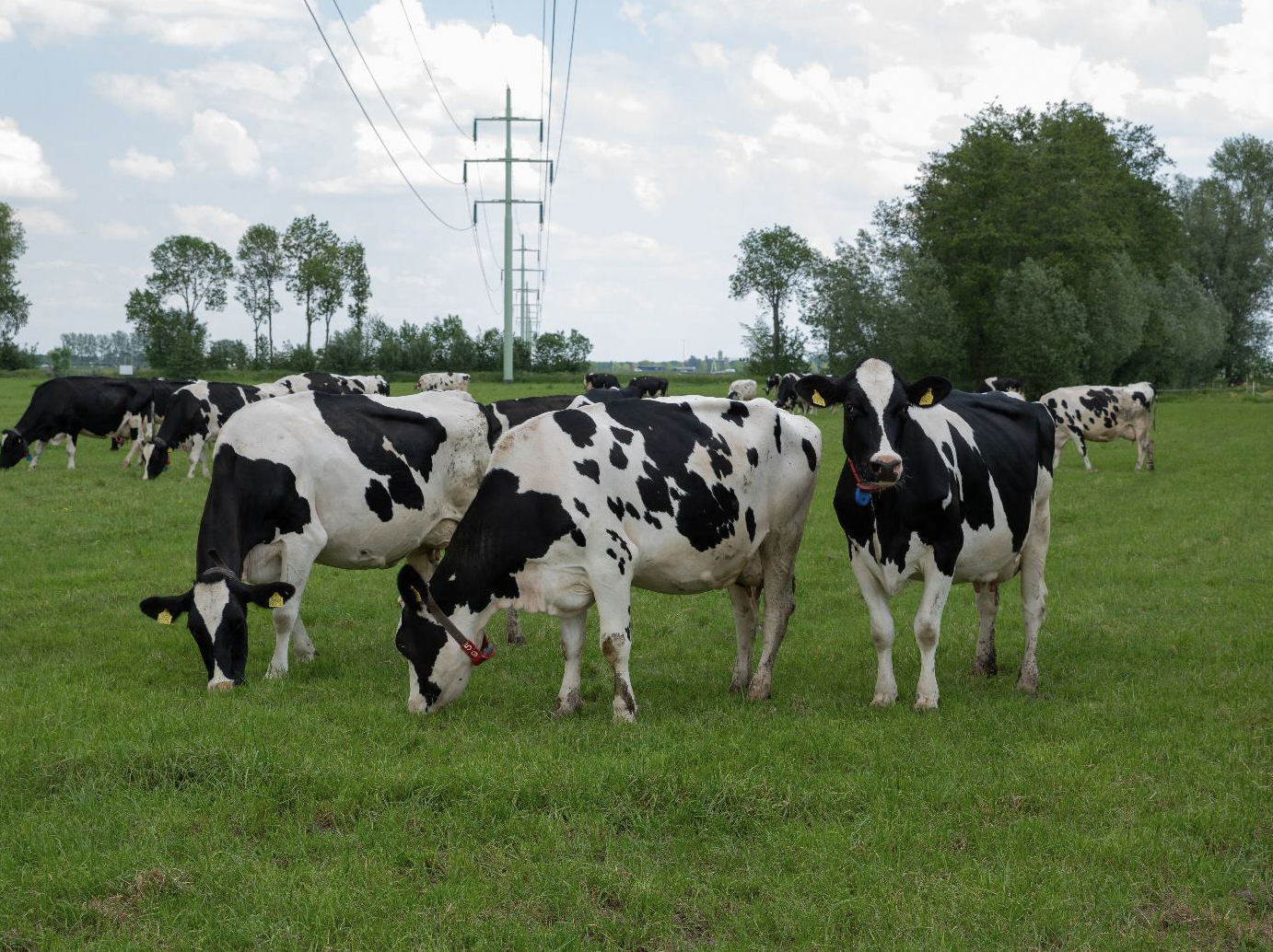Students from our Thesis Labs share their experiences in Lablogs. What did they discover so far in their Lab? This time Niels Tabingh Suermondt, master’s student in Industrial Ecology at Leiden University and TU Delft, and participant of the Thesis Lab 'Sustainable and Just Landscape Transformation'. “Food can be a powerful lever to raise awareness and drive change.” Read Niels's Lablog.

Name: Niels Tabingh Suermondt.
Master: Industrial Ecology,
Leiden University and Delft University of Technology.
“In my opinion, food is the essence of sustainability. We all need to eat, it's as simple as that. Moreover, food can be a powerful lever to raise awareness and drive change. However, the contemporary industrial food system has a major impact on climate change, pollution, biodiversity loss, and health. We need to do things differently. Rethinking what and how we grow, distribute and eat our food can mitigate these negative effects and reconnect us with the cycles of nature.
Challenges
To help me in this process of rethinking, I joined the Thesis Lab ‘Sustainable and Just Landscape Transition in South Holland’ commissioned by the Province of South Holland and ACCEZ. The province faces several challenges in the landscape transition and called upon university students to gain fresh insights. Together with eleven students from different studies and LDE-universities, we embarked on a journey filled with interesting lectures, workshops and an excursion. For example, we attended lectures on the biodiversity crisis presented by Naturalis and on transition theory by 'Transitiecoalitie Voedsel'. We also participated in a systems thinking workshop organised by En-roads Climate Action and went on an excursion to Xander Beks' dairy farm (I4Nature).
One lecture struck me especially.”
All this provided me with interesting insights. The lecture on the biodiversity crisis struck me especially, as the situation is more dire than I anticipated. The use of vast monocultures and the high chemical use of industrial agriculture impact biodiversity immensely, reducing important ecosystem services. The visit to Xander showed the challenges and trade-offs of transitioning a traditional dairy farm to become nature-inclusive. He also highlighted the important role the youth plays in catalysing this transition. Besides, I have learned from my fellow participants to look with different perspectives at a challenge and step outside my “bubble”.

Empathy
I have also developed empathy for the farmers who have protested following the Nitrogen crisis. These farmers are under increasing pressure to scale up their operations while facing stricter environmental regulations. There is a growing movement among farmers who want to adopt radically different approaches. These pioneers in agroecology are part of an alternative food paradigm that is gaining international traction.
Agroecology is a way of redesigning food systems, from the farm to the table, with a goal of achieving ecological, economic, and social sustainability. Through transdisciplinary, participatory, and change-oriented research and action, agroecology links together science, practice, and movements focused on social change. These agroecological seeks to transform the food system in two fundamental ways: by smartly applying ecological principles to enhance productivity and by shortening supply chains to reconnect consumers with the origins of their food.

Thesis
In the Netherlands, particularly in South Holland, agroecology is still a relatively new concept, and these farmers encounter numerous challenges and disadvantages. My thesis explores how the transition towards agroecology can be promoted in Zuid-Holland. First, I provide a comprehensive explanation of what agroecology entails. Then, I interviewed several pioneering agroecological farmers to identify the barriers they face. To gain insights from the governance perspective, I will also interview a provincial employee involved in agriculture. Finally, I translate these barriers into policy recommendations for the province.
